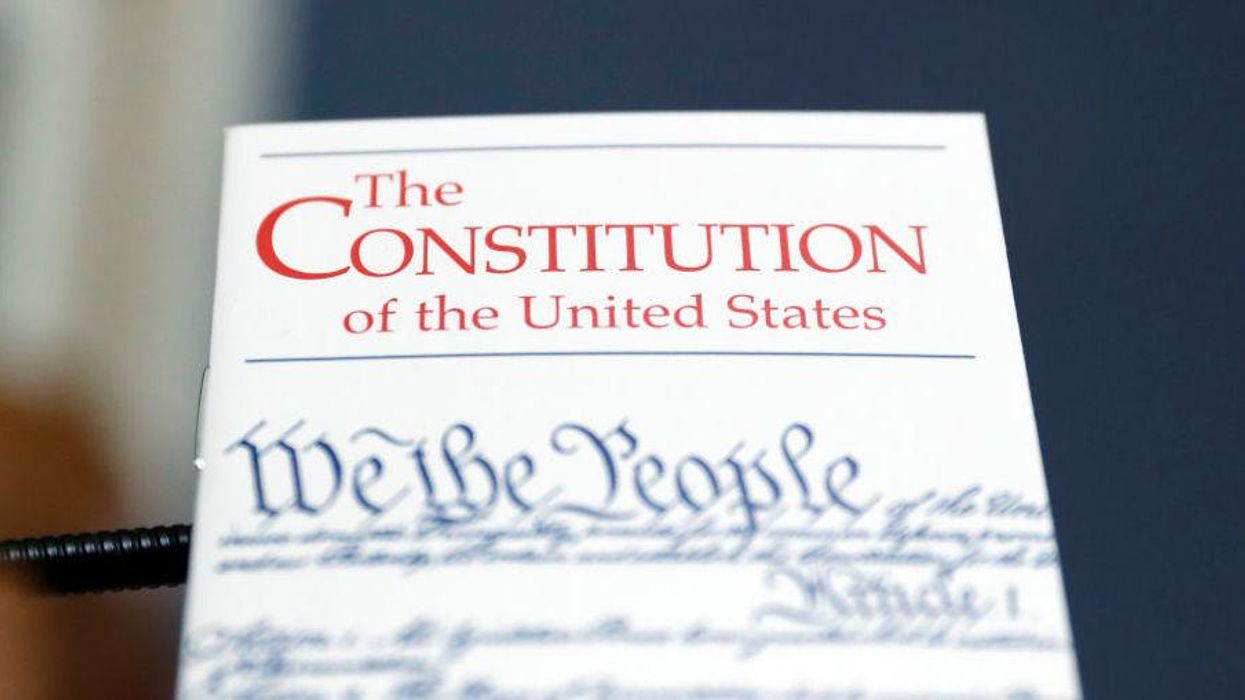
Andrew Harnik-Pool/Getty Images

A law professor proposed Monday that two major edits must be made to the United States Constitution in order to place new restrictions on the First Amendment and Second Amendment.
Mary Anne Franks — a law professor at the University of Miami Law School — published an essay in the Boston Globe advocating that both amendments be edited to promote the collective good, arguing that each is too individualistic in its current form.
"The First and Second Amendments tend to be interpreted in aggressively individualistic ways that ignore the reality of conflict among competing rights," Franks wrote.
"This in turn allows the most powerful members of society to reap the benefits of these constitutional rights at the expense of vulnerable groups," she added. "Both amendments would be improved by explicitly situating individual rights within the framework of 'domestic tranquility' and the 'general welfare' set out in the Constitution’s preamble."
Franks proposed the First Amendment be edited to make explicit that freedoms of expression that harm equality should be met with accountability.
She proposed the First Amendment should say:
Franks advanced the same charge that gun control advocates routinely levy at the Second Amendment: That it is "idiosyncratic and anachronistic."
According to Franks, the Constitution should not conflate self-defense with "the right to use a weapon." Rather, it should promote the "right to bodily autonomy," language that pro-abortion advocates use.
In fact, Franks wants to rewrite the Second Amendment to protect reproductive health. She proposed:
Despite her artful interpretation of what the law should be, Franks' proposals are unlikely to ever become the rule of law.
The framers of the Constitution instituted a process that makes amending the Constitution exceptionally difficult. Not only is a proposed amendment required to receive two-thirds approval in both the House and the Senate, but it also requires three-fourths approval from all states. The last constitutional amendment was ratified in 1992.
The other amendment process outlined in the Constitution is via a constitutional convention called by two-thirds of state legislatures. However, the Constitution has never been amended through this process.
Considering the gravity of the rights enumerated and protected in the First Amendment and Second Amendment, and given the considerable difficulty of amending the Constitution, Franks' ideas are unrealistic at best.